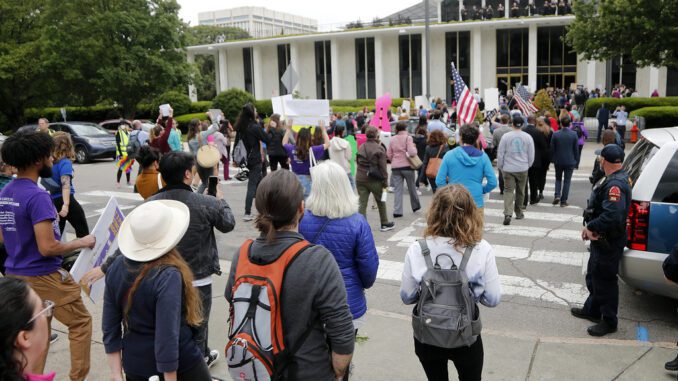
When does life begin?
For the past 50 years, that question was essentially irrelevant to the state lawmaking process. The U.S. Supreme Court’s Roe v. Wade ruling dictated the answer for legislatures throughout the country. In the United States, only very limited restrictions on abortion could be imposed through the end of the second trimester, which at the time of the decision was considered the point at which an unborn child could survive outside the womb.
That all changed in June 2022 when the U.S. Supreme Court issued its Dobbs v. Jackson decision overturning Roe and sending the question of when life begins back to the 50 state legislatures.
For me, the answer as to when life begins is a simple one — conception. But if that is not the answer, for anyone who has ever sat with a loved one as they lay dying in the hospital, it’s when their heart stops beating that their life ends. So, it’s only logical to me that a life begins at the point when a person’s heart starts beating.
For that reason, I have been advocating for the last 10 months that we should, with limited exceptions, prohibit abortions in our state after six weeks gestation, when an unborn child’s heartbeat can typically be detected through ultrasound.
The bill passed by the legislature on Thursday allows broad access to abortion through 12 weeks, or the end of the first trimester. Abortion in cases of rape or incest would be allowed up to 20 weeks, and up to 24 weeks in the event of a life-limiting fetal anomaly. Of course, it would be allowed at any time the life of the mother was in peril.
I supported the bill despite my belief that a more protective “heartbeat bill” would be the right one, for several reasons.
First, I understand that our laws are and should be the result of societal consensus, and I believe there is a consensus — both according to polls and my discussions with constituents — that abortion after the first trimester should be allowed in only certain limited cases. Currently, 12 weeks is the cutoff for abortion-on-demand in nearly two dozen European countries.
Secondly, the bill prohibits eugenics abortions. Though abortions because of an unborn baby’s sex or gender or the presence of Down syndrome are commonplace in some other countries, I believe it is essential that we as a civilized society stand up and say that the practice is abhorrent.
Finally, the bill goes a long way toward protecting and strengthening women, children and families. It includes improved health and safety standards for women undergoing abortion procedures and increased protections for born-alive abortion survivors. It also includes more than $160 million in new state funding over the next two years for contraceptive health care grants, prenatal health care services, paid parental leave for state employees, foster care and adoption assistance, childcare subsidies and related programs.
The bill passed this week was very much a consensus bill, aimed at balancing the interests of all stakeholders. As a strong pro-life advocate, I don’t think the new law is perfect. But I was still happy to vote for it because I think it gets us closer to creating the kind of society where respecting and supporting life — from beginning to end — is a fundamental value.
Rep. Dean Arp (R-Union) serves as senior chairman of the House Appropriations Committee.


